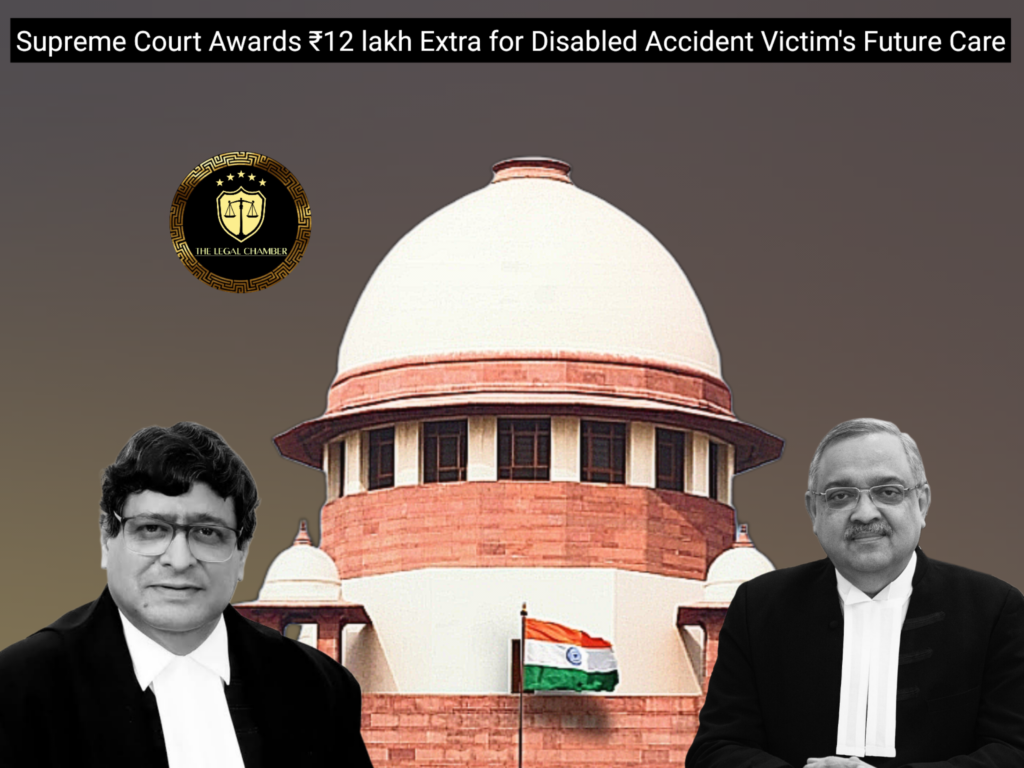
The Supreme Court ruled that insurance companies cannot be compelled to provide non-monetary relief like prosthetic limbs or ongoing medical supervision to accident victims. Emphasizing indemnity principles, the Court held compensation must be monetary, calculating ₹12 lakh for future prosthetic/wheelchair needs. It overturned the High Court’s directive for in-kind support, reaffirming insurers’ liability is limited to pecuniary compensation under motor accident laws. The judgment clarifies that “just compensation” under Section 168 of the Motor Vehicles Act excludes imposing perpetual welfare obligations on insurers.
Court Observation:
In its judgment, the Supreme Court made several pivotal observations while overturning the High Court’s directive. The Bench emphasized that an insurer’s liability under motor accident claims is strictly limited to monetary compensation, noting that imposing perpetual obligations for prosthetic maintenance or medical supervision would fundamentally alter the contractual nature of insurance indemnity. The Court observed that while the High Court’s approach reflected commendable humanitarian concern, it erred in converting the insurer into a “lifelong healthcare provider” – a role alien to its function as a financial indemnifier.
The judgment clarified that “just compensation” under Section 168 of the Motor Vehicles Act must be quantified in pecuniary terms, allowing victims autonomy in managing their rehabilitation. The Bench systematically calculated future medical needs – ₹10 lakh for five prosthetic limb replacements and ₹2 lakh for wheelchairs – demonstrating how tribunals should project lifelong costs when awarding damages for permanent disabilities. Significantly, the Court noted that such enhanced compensation maintains the victim’s dignity by granting them control over treatment choices, rather than tying them to insurer-managed services. These observations reaffirm the balance between comprehensive victim compensation and the defined legal boundaries of insurance liability.
Final Decision & Judgement:
The Supreme Court allowed the insurer’s appeal in part while substantially enhancing the victim’s compensation. It set aside the High Court’s directions for in-kind support but awarded an additional ₹12 lakhs (₹10 lakh for prosthetic limbs + ₹2 lakh for wheelchairs) with 6% interest, payable within two months. The total compensation thus rose from ₹16.34 lakhs to ₹28.34 lakhs. The Court mandated direct transfer to the victim’s account, rejecting the insurer’s perpetual monitoring role while ensuring full financial coverage for lifelong mobility needs. This landmark judgment recalibrated the balance between victim welfare and contractual insurance principles by: (1) converting rehabilitation obligations into quantified monetary relief; (2) prohibiting non-pecuniary insurer mandates; and (3) establishing a precedent for calculating future disability costs without imposing open-ended liabilities. The decision reaffirmed that compensation under motor accident laws must be comprehensive yet strictly financial in nature.
Case Details:
Case Title: The Tata AIG General Insurance Co. Ltd. vs. Suraj Kumar & Ors. Citation: 2025 INSC 707 (Non-Reportable) Appeal No.: [@ Special Leave Petition (C) No. 3484 of 2020] Date of Judgment: May 15, 2025 Judges/Justice Name: Hon’ble Mr. Justice K. Vinod Chandran & Hon’ble Mr. Justice Sudhanshu Dhulia
Download The Judgement Here